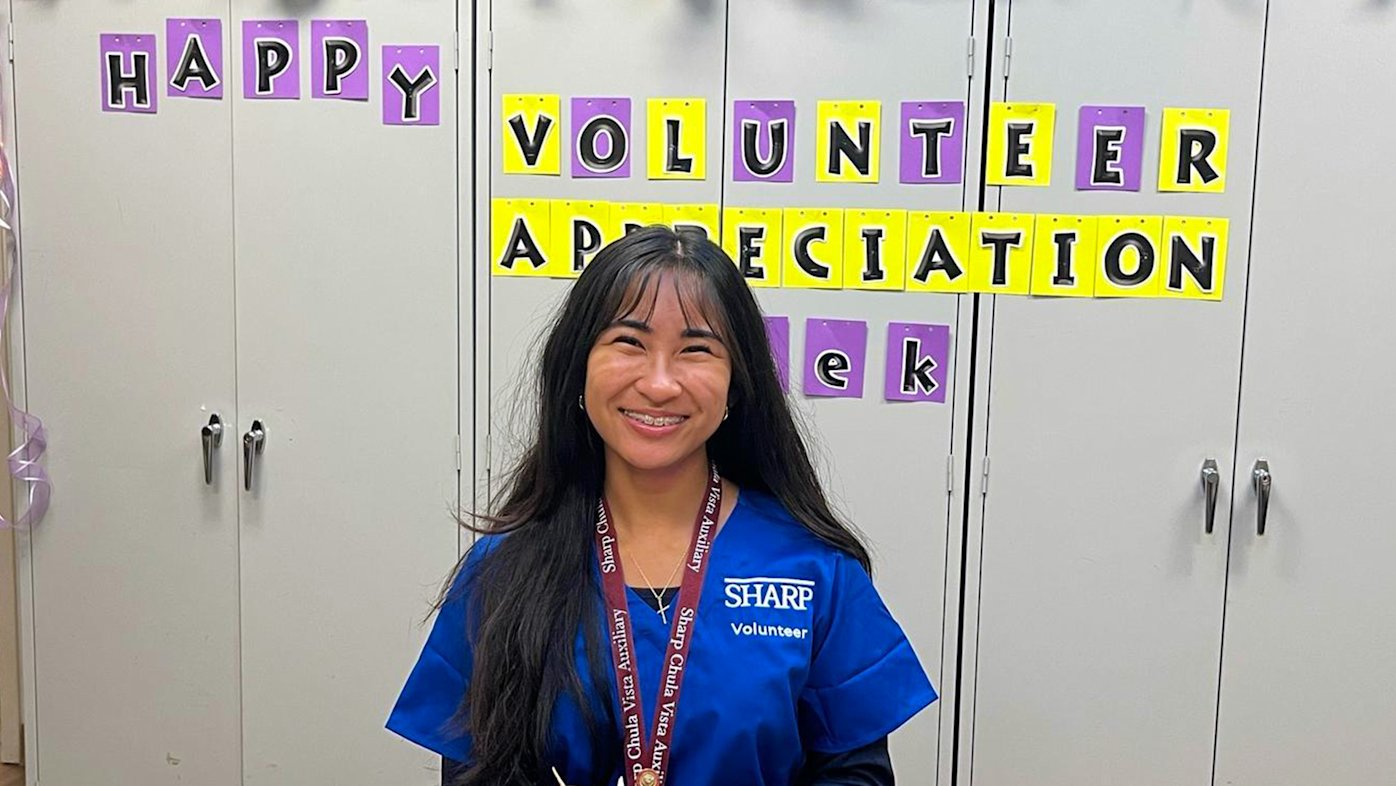
Student volunteer brings joy with wishing cranes
Carefully folded origami cranes carry messages of hope and healing, as one teen volunteer helps brighten patients’ days at Sharp Chula Vista Medical Center.
It was a horrifying incident that no one would ever want to witness, let alone experience firsthand.
Dr. Eric Reed, a pediatrician with Sharp Rees-Stealy Medical Group, was walking toward the pediatric outdoor respiratory clinic when he heard a loud commotion. He turned to observe a patient assaulting a security guard at the clinic. The security guard was knocked to the ground unconscious.
Immediately, Dr. Reed sprang into action to intervene. The attacker then turned on him. Amid the scuffle, Dr. Reed heard a crack in his neck, his body went limp and he slumped to the ground. Fortunately for Dr. Reed, the security guard regained consciousness and, along with assistance from others, subdued the attacker.
Dr. Reed experienced a severe flexion to the neck, sustaining several fractures. He underwent surgery at Sharp Memorial Hospital, performed by Dr. Richard Ostrup, a neurosurgeon affiliated with Sharp Community Medical Group, and was hospitalized for five days. He now has three fused bones in his neck.
As he reflects on the April 28 incident today, Dr. Reed has no regrets. “People say it must have been a hard choice to intervene,” he says. “My internal metric was very quick, and I showed up when someone was in need. I was grateful to learn that, and I have no remorse at all for my actions.”
Finding a new ‘family’
What followed were some long, painful and lonely days for Dr. Reed in the hospital, as the COVID-19 pandemic prevented family members from visiting loved ones. Through this ordeal, Dr. Reed discovered a second family: the team at Sharp HealthCare. Without his immediate family by his side, the staff went above and beyond.
“They took on advocacy roles that a family member would normally assume,” says Dr. Reed. “I felt I was being cared for by a family member. This whole experience gave me a much greater appreciation that this isn’t just an organization; it’s much more of a community and a family. And, they deeply cared for me.”
While Dr. Reed was in the hospital, his devoted wife Stefany remained in constant virtual contact with him, providing love, support and encouragement. Her gentle reminders helped regulate his breathing, soften his muscles and calm his reawakening nervous system.
When he returned home, his children — daughters Neshama, 15, and Aleah, 12, and son Samuel, 7 — provided an immediate boost. Home from school because of the pandemic, they were able to take on many of the necessary household duties.
“My middle child (Aleah) is very nurturing,” says Dr. Reed. “She and Stefany took turns assisting me. I was a fall risk, as my coordination and balance were off. My feedings and movement had to be managed. In addition, the pain was very severe. They kept a detailed white board that listed all my medications.”
Dr. Reed has enjoyed a remarkable recovery. In fact, 10 days after surgery, the avid cyclist was back on a bike, albeit an indoor spin version. He continues to ride the bike daily and hopes it won’t be long before he can return to cycling outdoors.
He also returned to his other passion — working at the clinic — on a part-time basis on June 22. He knows it’s not in his nature to take it easy. “My mindset is to go full throttle,” he says, no doubt a nod to his cycling exploits. He also knows there are many eyes on him, watching his every move.
“I really missed my patients, and getting back to work was such a relief,” says Dr. Reed. “Doctoring — being a pediatrician — is who I am. Initially, the shifts were exhausting, but each time it gets easier. I didn’t even need to nap after my shift the other day.”
Dr. Reed expects to resume full-time clinic work in a few months.
Our weekly email brings you the latest health tips, recipes and stories.